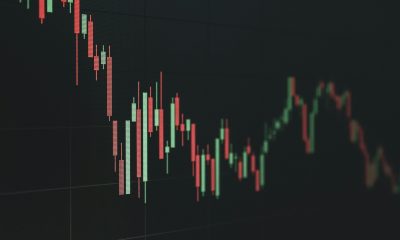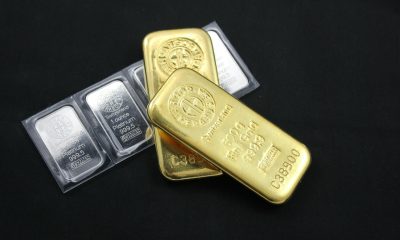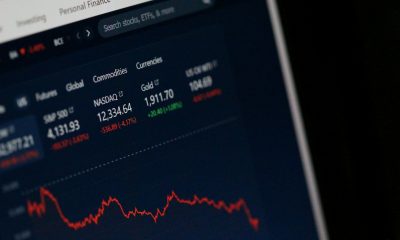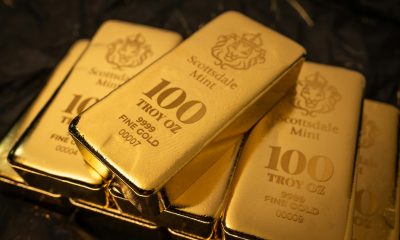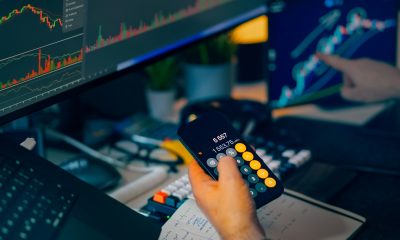Featured
2 ways to profit from gold’s persistent rise
After peaking in January, gold seems to have no immediate signs of slowing down.
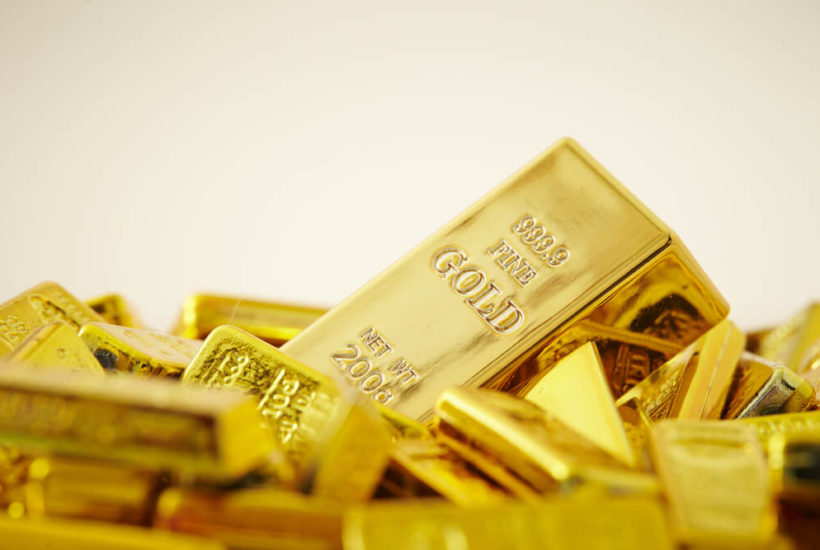
On Jan. 30, gold peaked to its highest in more than eight months and the precious metal never looked back since then. The spot gold was at 0.5 percent high at $1,310.49 per ounce, the highest it got since May 15. U.S. gold futures were up 0.4 percent at $1,308.90 per ounce.
Spot gold remained steady at $1,327.28 an ounce on Feb. 26. The U.S. futures were slightly lower but still remained at $1329.5 which was higher than what it got in January. This performance was coming from another steady session on Feb. 22. Spot gold was at $1,322.06 per ounce while the U.S. gold futures were up 0.1 percent at $1,329.1 per ounce.
Observers are attributing the heightened activities toward gold with how investors remain skittish about the still unpredictable geopolitical tensions such as the ongoing U.S.-China trade dispute, weaker dollar, rising interest rates. Analysts said gold is perceived to be the safe haven amid the present economic and political uncertainty.
“There’s plenty of reason to still look at gold as a means to have some protection,” Saxo Bank analyst Ole Hansen. The analyst added that there is an overarching expectation that markets will continue to face difficulty, especially stocks.
So, instead of wallowing over the deemed market volatility which investors hope is temporary – U.S. president Donald Trump has been hinting this week about the positive developments on trade negotiations between US and Chinese officials – here are the best two ways on how to profit from gold’s uptrend.
Buy shares in one of the gold trusts and ETFs
Gold trusts and exchange-traded gold trusts are entities that own the physical gold bullion which they keep in a vault. Normally, each share of the trust represents a fractional ownership of the physical bullion.
The ETFs, meanwhile, mostly monitor or track the price of gold or cover activities across the worldwide gold mining industry. There are approximately 33 ETFs traded in the U.S. markets of which the Gold ETFs have a total of about $66.92 billion assets under management.
In January, during gold’s highest peak so far, there were observable buying activities by gold ETFs according to Suki Cooper, a precious metals analyst from Standard Chartered Bank. She noted that the SPDR Gold shares ETF seemed to be the most popular at the time.
A Feb. 21 report from Bloomberg noted that gold mining ETFs accumulated the most turnover compared to any other exchange-traded funds in the U.S. For one, the $11 billion VanEck Vectors Gold Miners ETF experienced heightened trading volume in two months.
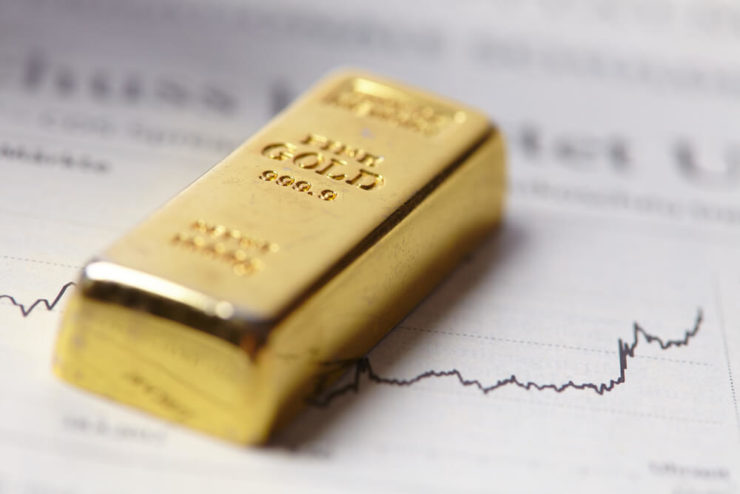
Gold peaked to its highest levels in over eight months on Jan. 30, 2019. (Photo by allstars via Shutterstock)
Trading under the ticker GDX, it is one of the biggest materials ETFs. It also tracks companies that are for the most part engaged in precious metal mining. At the time of Bloomberg reporting, GDX was overwhelmed with volumes that were way more than the activities seen in any other U.S. ETF on Feb. 19. To be exact, there were about 90 million shares that amounted to more than $2 billion that “exchanged hands” that day.
Invest directly on mining companies
According to Cooper, 2019 is looking to be gold’s year. She expects it to maintain a steady performance above $1,300 per ounce in the whole of 2019. Jim Steel, head of precious metals at HSBC, had similar projection. He expects an average price of $1,314 and a high of $1,350 from 2019 to 2020.
As mentioned above, gold is already at $1,327.28 as of Feb. 26. As gold price continues to meet and beat analysts’ expectations, there could be no other winners than the very party producing it, the mining companies.
“When the price of gold goes up by 11 percent in a very short period of time, a lot of that falls right to the bottom line and increase profitability and margin, that obviously translates to tremendous operating leverage for the gold mining companies,” John Ciampaglia, the chief executive officer of Toronto-based Sprott Asset Management, explained.
The “win” can over pour into the investors as mining companies generally return cash in the form of dividends. With direct investments in mining companies, investors can draw cash flow from those investments.
An opportune time to invest in gold
Past market conditions tend to create precedence when it comes to how gold inversely performs with trade and market conditions, according to Steel. There have been instances in the past when world trade was flourishing but gold was at its worst performance.
“The rationale behind that is high trade volumes usually means low inflation, strong paper assets, a strong dollar, strong equity markets,” Steel highlighted.
This observation was also highlighted by The World Gold Council which described gold as an effective diversifier to mitigate the loss during times of market stress. Gold can provide investors cushion against inflation and currency risk, according to the council.
In the end, the wiser move will be for investors to diversify the portfolio by adding gold. The council recommends allocating between 2 percent and 10 percent of the portfolio to gold.
(Featured image by mnimage via Shutterstock)

-

 Crypto1 week ago
Crypto1 week agoEthereum Pushes AI Integration With ERC-8004 and Vision for Autonomous Agents
-

 Business3 days ago
Business3 days agoDow Jones Near Record Highs Amid Bullish Momentum and Bearish Long-Term Fears
-

 Business1 week ago
Business1 week agoDow Jones Breaks 50,000 as Bull Market Surges Amid Caution and Volatility
-

 Crowdfunding9 hours ago
Crowdfunding9 hours agoThe Youth Program at Enzian Shooting Club Is Expanding Thanks to Crowdfunding


